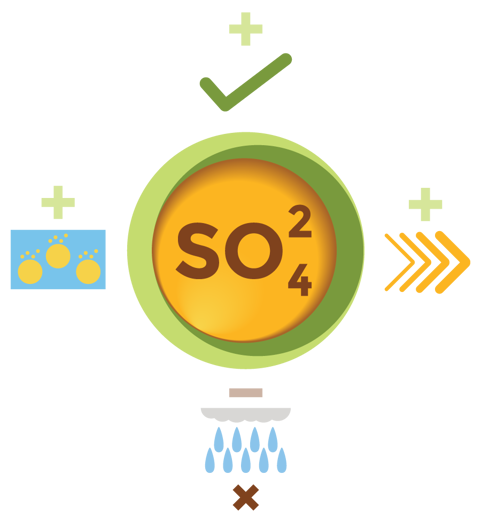Supplies of Sulphur (Elemental or Sulphate)
Plants take up sulphur in the sulphate (SO4) form. The sulphate form is water soluble, and being an anion, is readily leachable.
The elemental form of sulphur needs to be broken down into the sulphate form before becoming available to the plant. This is achieved by bacteria (Thiobacillus spp.) naturally present in the soil, which digest the sulphur and convert to sulphate.
Pros and Cons of the two sulphur sources

Sulphate Sulphur
- Immediately available to the plant
- Water soluble
- Quick acting delivering SO4° which the plant can take up immediately
- Leachable
- Can be lost with one heavy rainfall event

Elemental Sulphur
- Sustained release of SO4 throughout the crop season
- Not lost by leaching
- More available at critical growth stages of the crop
- Can build up a sulphur “bank” in the soil to benefit future crops
- Needs to convert to SO4 before becoming available to the crop
- Requires a finite time (typically 2 weeks) to start to generate SO4 in the soil
“I started using Brimstone90 last year, and saw an immediate improvement in crop vigour followed by my best ever yield. Can't get enough of it!”
Arable farmer, UK